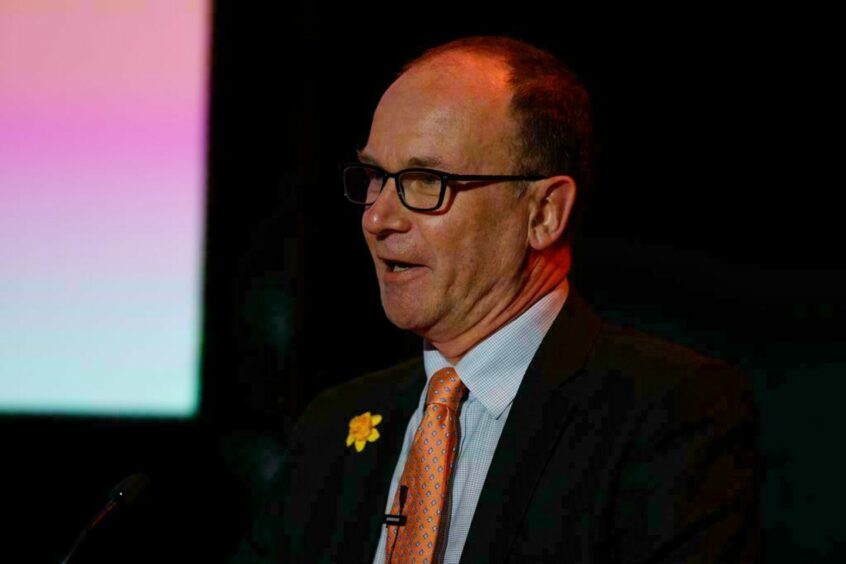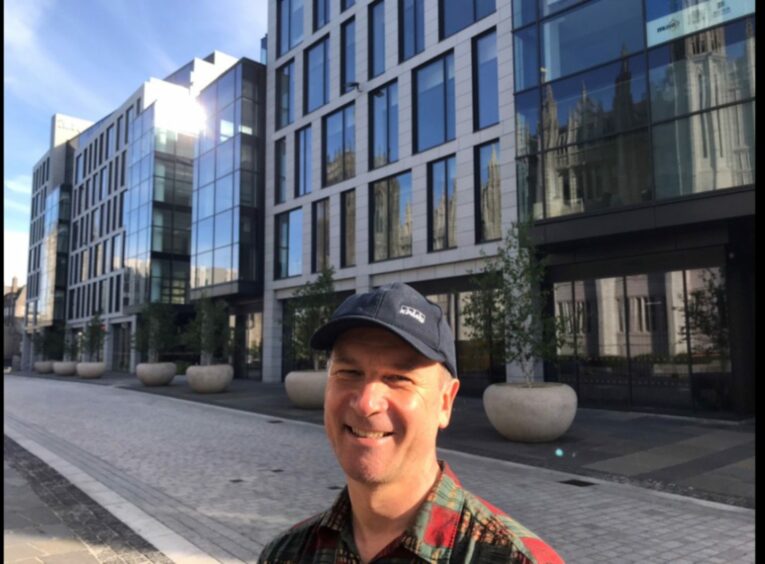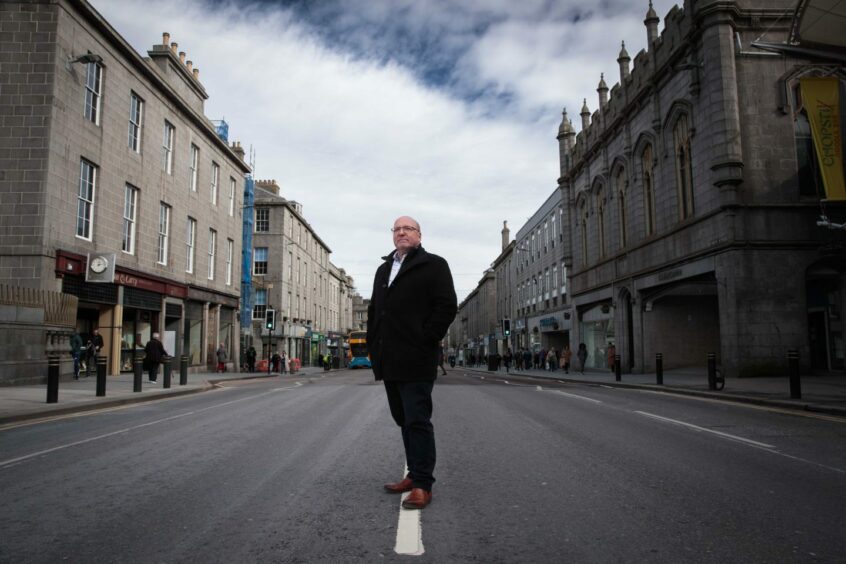
Martin Findlay’s glass is half full.
As the KPMG’s head of Aberdeen approaches his retirement from a 31-year career, Mr Findlay is in a reflective mood.
When the Aberdeen University graduate started professional life, the mainstream accountancy firms were counted as the “big eight” before these were reduced by decades of mergers and acquisitions.
When he reaches his final day at the end of April, he leaves KPMG, now dubbed one of the “big four”, as the industry continues to face the rise of artificial intelligence, not to mention ongoing regulatory concerns over auditors’ roles in the wake of collapsed companies from Enron to HBoS to Carillion.
He noted his arrival in the profession came in “very different times”.
His dad was a driver and a handy man and he recalls how a partner openly queried whether Mr Findlay would “cope” due to his perceived working-class background.
“We have come a long way from attitudes of the time,” he says.
He qualified as a chartered accountant in 1990 and joined KPMG in 1992, becoming senior partner for the Aberdeen office in 2016.
He’s known for bringing his dry humour into the office and is a fan of April Fools gags – although he remined tight lipped on his favourites.
He insisted: “I am a serious person. Tax people have to be serious – clients pay for serious sober business advice. But there are plenty of opportunities to have fun.”
The firm moved from Albyn Place to Marischal Square having just picked up the keys to the new office in April 2020 – just in time for the lockdowns. As soon as he could, he was back in the office encouraging – but not forcing – staff to return
“I worked hard to get the balance right – advocating the benefits while making sure my communications were carefully worded. We weren’t allowed to compel people to come in – we are still giving people a choice.”
People giving up “WFH” has been like a “snowball” he said and KPMG Aberdeen has topped the league tables amongst the firm’s offices for footfall per head during lockdowns.
“But we have now got a lot of people coming in because they realise it’s actually fun to be in.”
He says the first thing he’s going to do once he hands back his work laptop is take some time off before he commits to the next stage of his life. “31 years is a long time to be doing the same thing,” he comments.
He will certainly look to “add value” somehow – perhaps joining business leader Bob Keiller and the Aberdeen and Grampian Chamber of Commerce’s campaign to clean up Union Street.
“Whether I will find myself over there with a scrubbing brush to personally clean the buildings like Bob Keiller seemed to be alluding he might personally be doing,” he mused.
“If there’s a photo op to be had I’d get my kneeling pads and my wire brush.”
But he also warns about the dangers of empty slogans in the place of action and plans.
“These things need to actually be done,” he said. “There’s a lot of talk about what the city needs to do, the Shire needs to do. What we need to do to capture energy transition.
“It is just words unless stuff actually happens.
“I’ve been around long enough to know the difference between slogans and delivering.
“I also know the difference when between people who say they have strategy when they actually don’t.
“Strategy is a concept Bob Kieller well knows.
“Strategy is about actually having a structure of how to deliver something that is important.
“Whether that is sorting Union Street or capturing our rightful place in the energy transition, it is about having an actual strategy that is then delivered.”
Energy Capital at risk?
His glass is only half full because there remains causes for worry. He believes the north-east faces the risk it will lose its grasp on its claim to being an energy capital.
“The risk of course at the moment is we are being overtaken by countries who are seizing the opportunities on hydrogen and various other technologies.
“We are talking about becoming the green capital when other people are actually developing technology, constructing wind turbines as opposed to just standing by to service them.”
But there is still time, if the region moves quickly and the UK and Scottish Government is able to offer a “coherent” energy strategy.
“There’s plenty of time – if we move quickly and strategically now.
“But in five or 10 years’ time there will come a point where we actually do miss the opportunity.
“But the risk is we end up not realising this region’s potential. And given the skills and the entrepreneurship you still see here – and you still see private equity players spotting opportunities, there just needs to be more of that.
“It does need to sit behind a coherent and detailed energy policy – one that doesn’t bend to the whim of the latest populist uprising.
“You can’t change it every year. You have to have a strategy and deliver on it. I’m afraid the UK and Scotland hasn’t done that very well.”
He also wishes the electorate that politicians must pander to were better able to understand the issues as he sees them.
“It would be great if people voting had a broad and deep understanding of all these topics so they could make an informed decision on what just transition means and the impact of switching off oil and gas production actually is, rather than raising a placard and throwing paint over a building.
“I’m afraid that is too much to hope for.”
He likens the history of the North Sea to Silicon Valley – albeit one that has somehow not been able to capitalise as well on its successes as has its glitzier, richer counterpart in California.
“Just thinking what the city was like then and how it has invented exploration and production – all the entrepreneurship and technological developments, all of which was largely done without fanfare.
“It wasn’t like Silicon Valley that the world knows what it has done.
“It was all done here a bit under the radar – it created boom times which arguably we have not capitalised on because we have used the spoils for current spending not for longer term investment.
“But if you take all that entrepreneurship and the skills that have been developed, you think why can’t we just do the same again?
“The answer is we could, and we can. And the more we do the more sustainable Aberdeen and Scotland becomes as a wealth-creating part of the world.”
Recommended for you

 © SYSTEM
© SYSTEM © Supplied by AGCC
© Supplied by AGCC